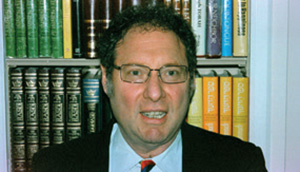
Can’t I be a good person without being religious? Do I need God or the Torah to tell me what is good and how to live?
“There have been times when this religion has brought… oppressive minutiae, and obligations so great I felt guilty no matter what I accomplished. Yet on balance the overwhelming effect has been to fill my life with purpose, human connectedness, joy, meaningful living experiences, full of love that make everything worthwhile.” —”The Jewish Way,” by Rabbi Irving Greenberg.
There you have it. In two power-packed sentences we have the essence of religious Judaism: a demanding life of detailed rituals and moral laws guiding every facet of our lives, whose purpose is to create ethically responsible and sensitive human beings, with fulfilled, meaningful lives, connecting us to others and to communities, under God’s guidance.
But it’s the rituals that sometimes seem overwhelming, even meaningless and boring at times. And why are they so overemphasized?
“What does it matter to the Holy One, blessed is He, whether we slaughter an animal from the front of the neck or the back of its neck? Rather the Mitzvos were given to purify, to improve, mankind,” says the Midrash. My daughter, Ilana, believes that this Midrash teaches that the commandments, even the rituals, were given to help develop our character and influence us to behave morally.
The Rambam takes this Midrash to mean that we cannot understand the reasons for the details of the commandments, and perhaps there are no reasons for them. Why must we slaughter a cow from the front of the neck? Perhaps there is no significance. It could have been the reverse. Perhaps we are to learn to surrender our lives to the authority of God. Perhaps certain things might have been commanded simply in order to drill the habit into us so that a person accustom himself to obeying God.
There are two different stages in moral development. We begin, as children, by obeying other people’s orders. But we do not end there. Moral growth is that process by which external commands are internalized through habituation and study. We begin by obeying commands because they are commands. We end by making them our own.
Can I just be a good, decent person, without all the laws, rituals, mitzvos? Do I need God or an authority to tell me how to live? Yes, one can be a good decent person without God or His laws, but too many people aren’t.
For most of human history, corruption, greed, injustice, deceit, exploitation, violence and war have been real and present dangers. Societies have been plagued with crime, addictions, divorces, law suits, children born out of wedlock, abortions, arrests, racism, anti-Semitism etc. If ethics is so easy, how does it turn out to be so hard?
Halacha, Jewish law, addresses life using the language of rituals. But the language is symbolic. In Judaism, theology, values and beliefs are contained in gestures, rituals, that express ideas; ultimate truths are expressed in what appear to be external and everyday acts. Kosher slaughter, reciting the Shma daily, wearing tefillin, waving an esrog and lulav, taharas mishpachah are examples. Eating matzah and bitter herbs on Pesach should remind us to fight violence and oppression and to be kind to orphans, widows and the poor.
Rituals make a difference by turning abstract rules into living practices, that, in turn, shape ethical character. The fact that each day we must pray, give money to charity and make a blessing over all we eat and drink; that once a week, however busy we are, we must stop and spend time with family and community; that once a year, we must atone for our sins and apologize to those we’ve offended: These things transform life. Without daily prayer, would I consciously recall that there are those to whom I accountable—God, my fellow human?
One of Judaism’s most distinctive and challenging ideas is its ethics of responsibility, the idea that God invites us to become his partners in the work of creation. Life is God’s call to responsibility.
More than in any previous generation in history, we have come to see the individual as the sole source of meaning. If you ask people today what they’re looking for, the most prevalent answers are self-fulfillment and self-expression. The strands of connections between us and others that once held families, communities and society together have weakened. We have become lonely selves in search of purely personal fulfillment. But that surely must be wrong. Life spent pursuing the satisfaction of desire is less than satisfying and never all we desire. Judaism perceives human existence differently. Our perception is that man is fundamentally a being who is commanded, who is called upon and on whom demands are made, and the fulfillment of these demands may or may not be congruent with self-fulfillment.
Was Dostoevsky right when he said, “If God does not exist, all is permitted”?
Existentialist philosophy teaches that there is no purpose to exist. Some thinkers, like Albert Camus, actually questioned whether or not one should simply commit suicide.
Once a noted philosopher and non-believer who enjoyed provoking rabbis with arguments demonstrating the non-existence of God came to Berditchev. The man arrived at the home of Reb Levi Yitzchok, who was walking in deep meditation. Suddenly, without introduction, the rebbe looked up straight into his eyes and said gently, “And what if you are right? What if there is no God, then what do you have? What do you live for?” The philosopher later confessed that this question had moved and troubled him more than all the arguments he had ever heard before.
“Had your Torah not been my plaything, I would have perished in my emptiness.” —Tehillim 119:92
By Martin Pollack
Martin Polack is a business analyst involved in adult Jewish education.










